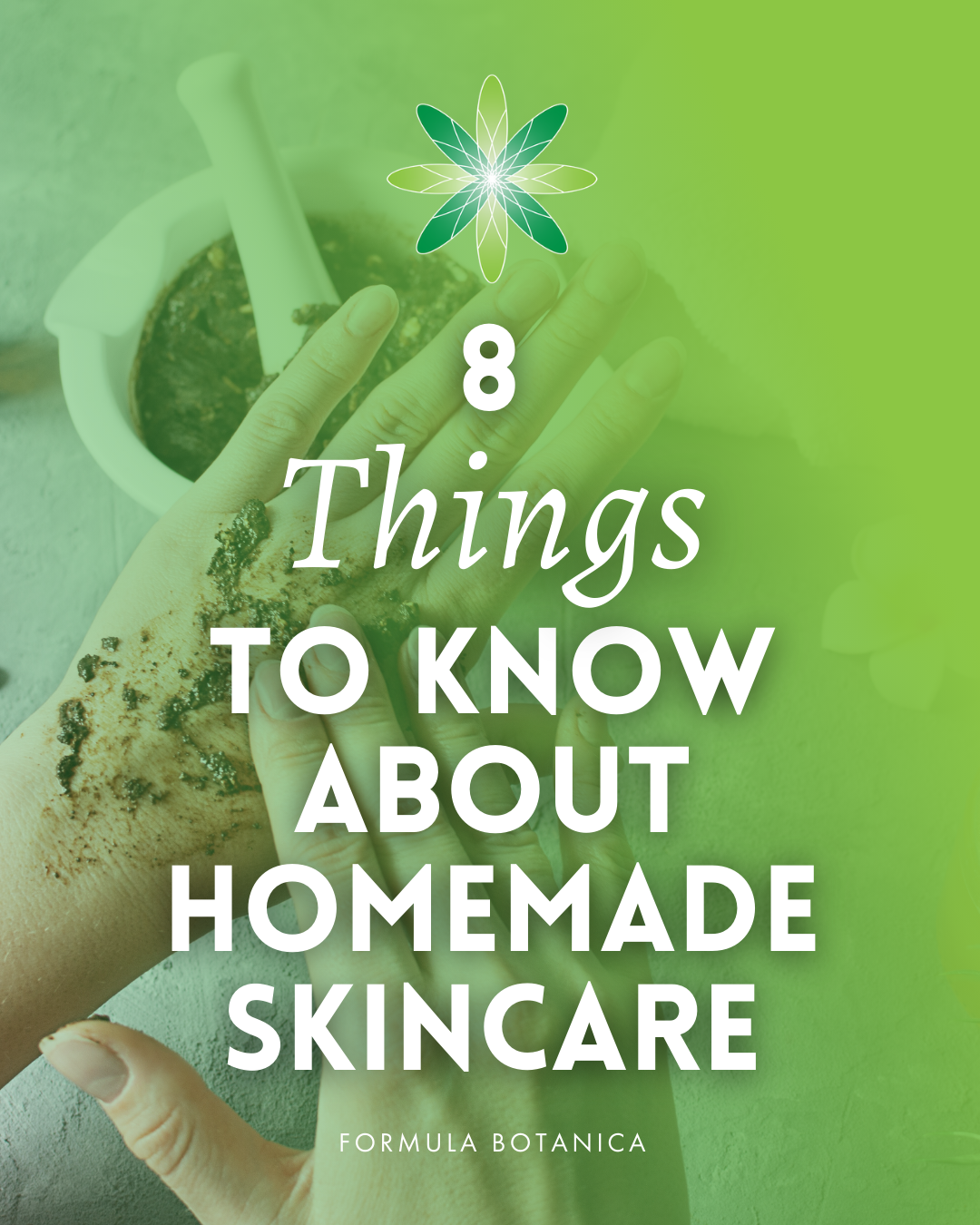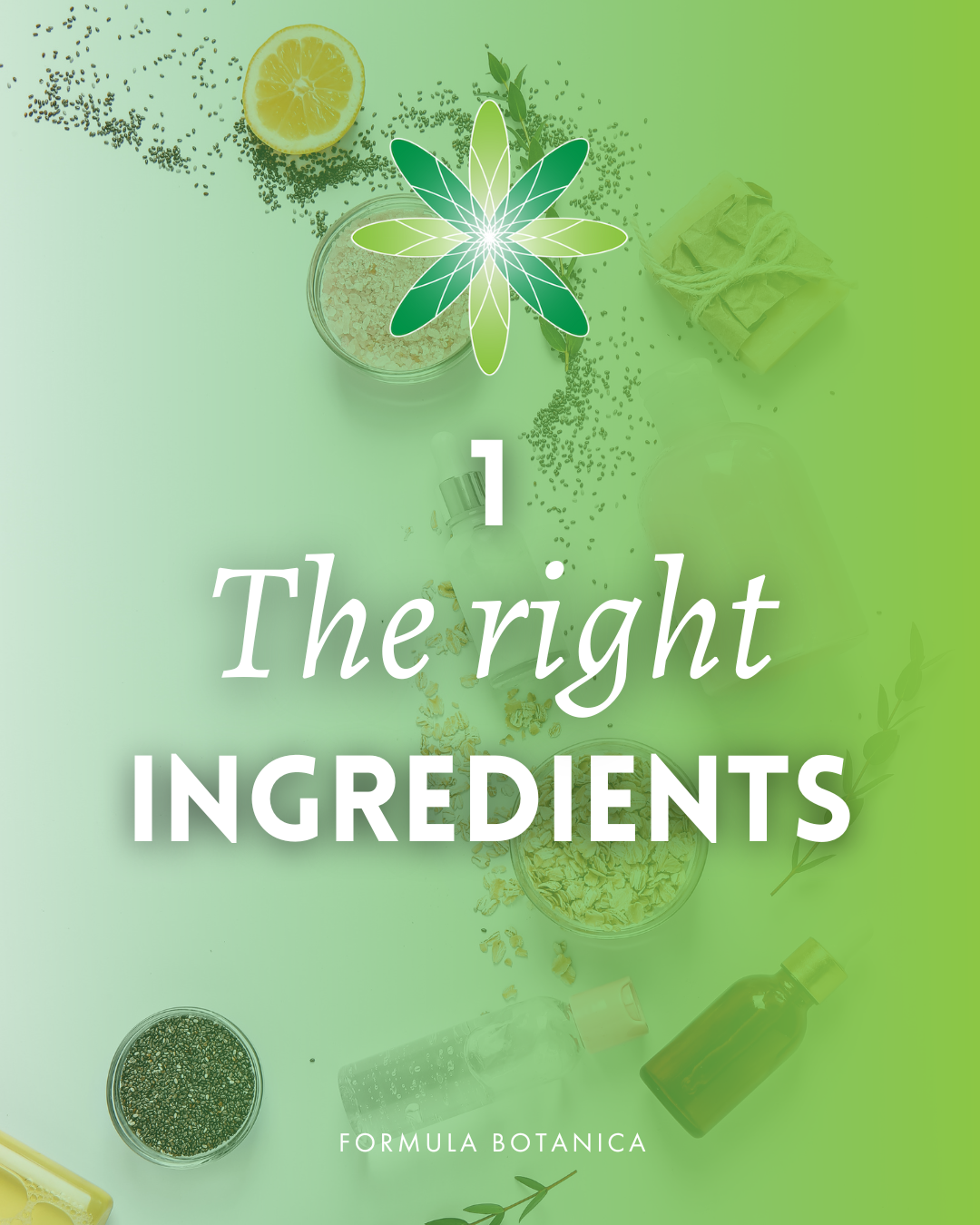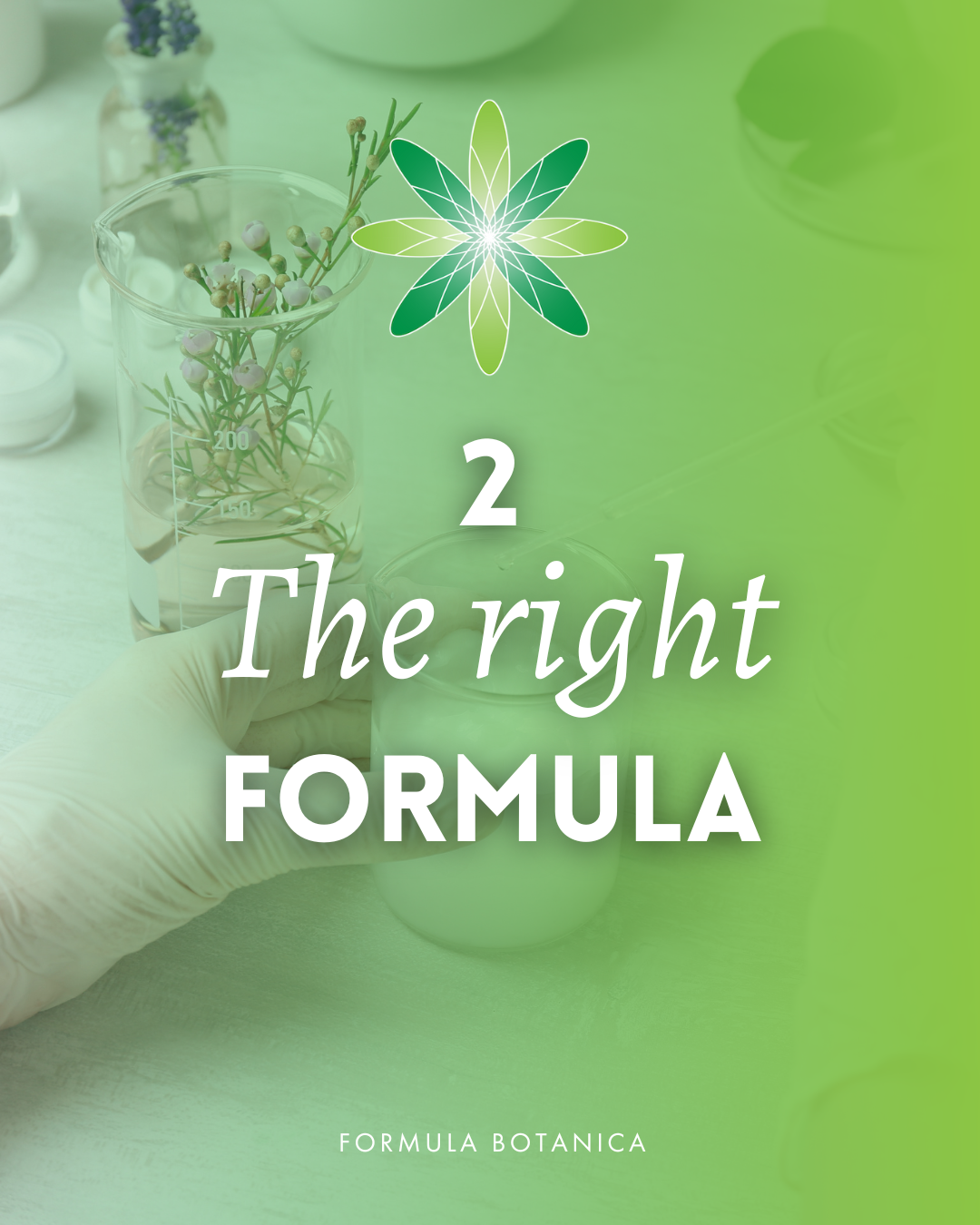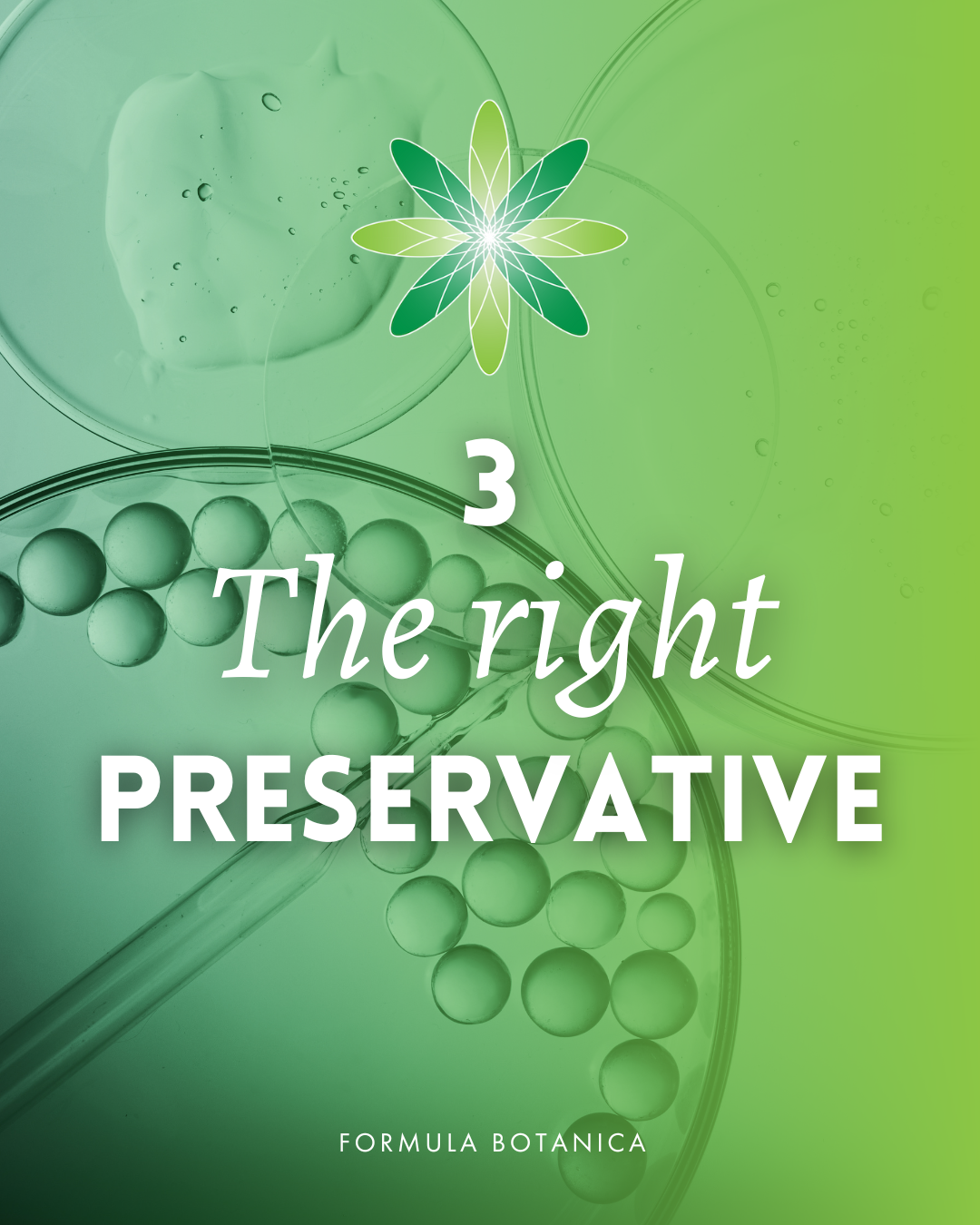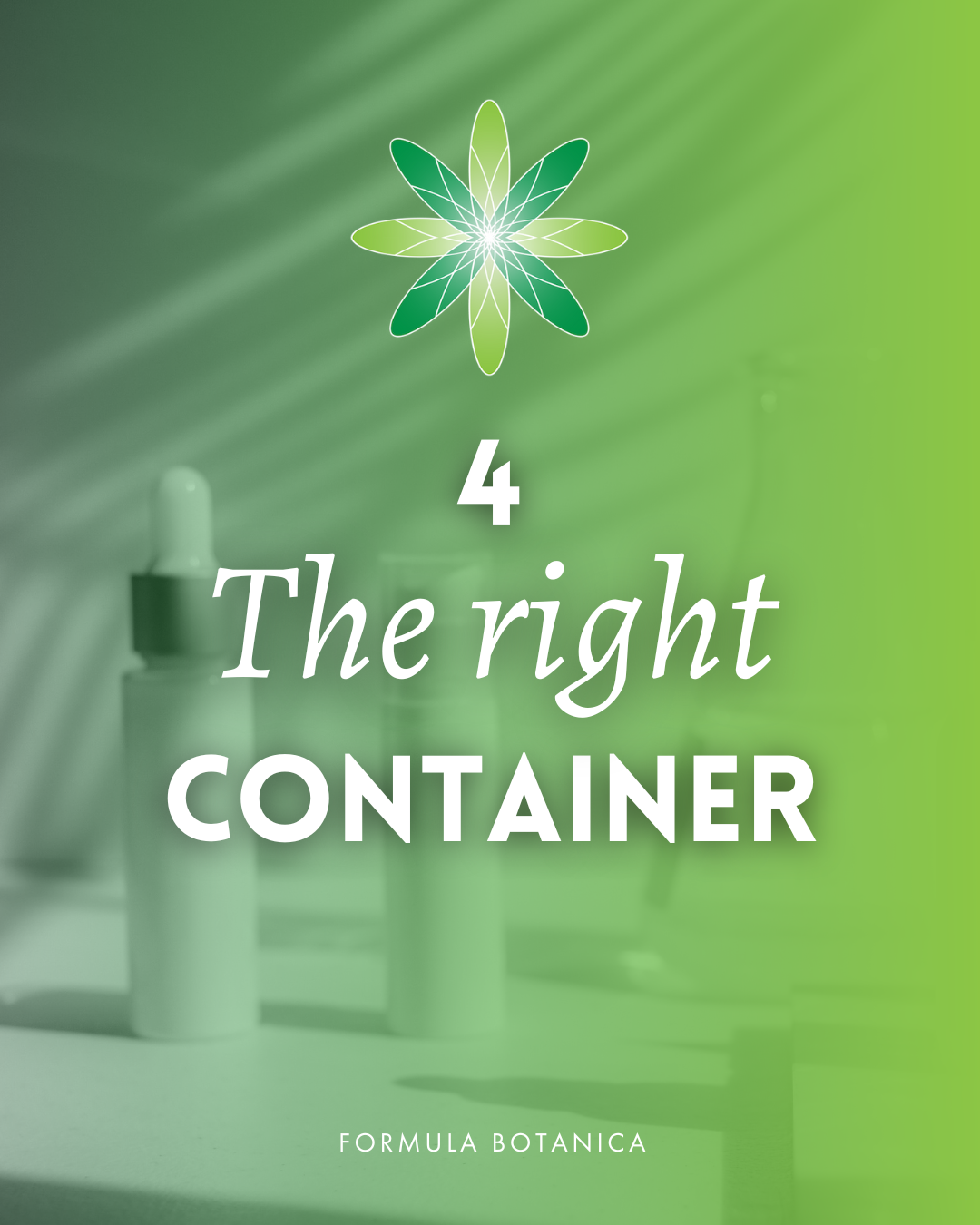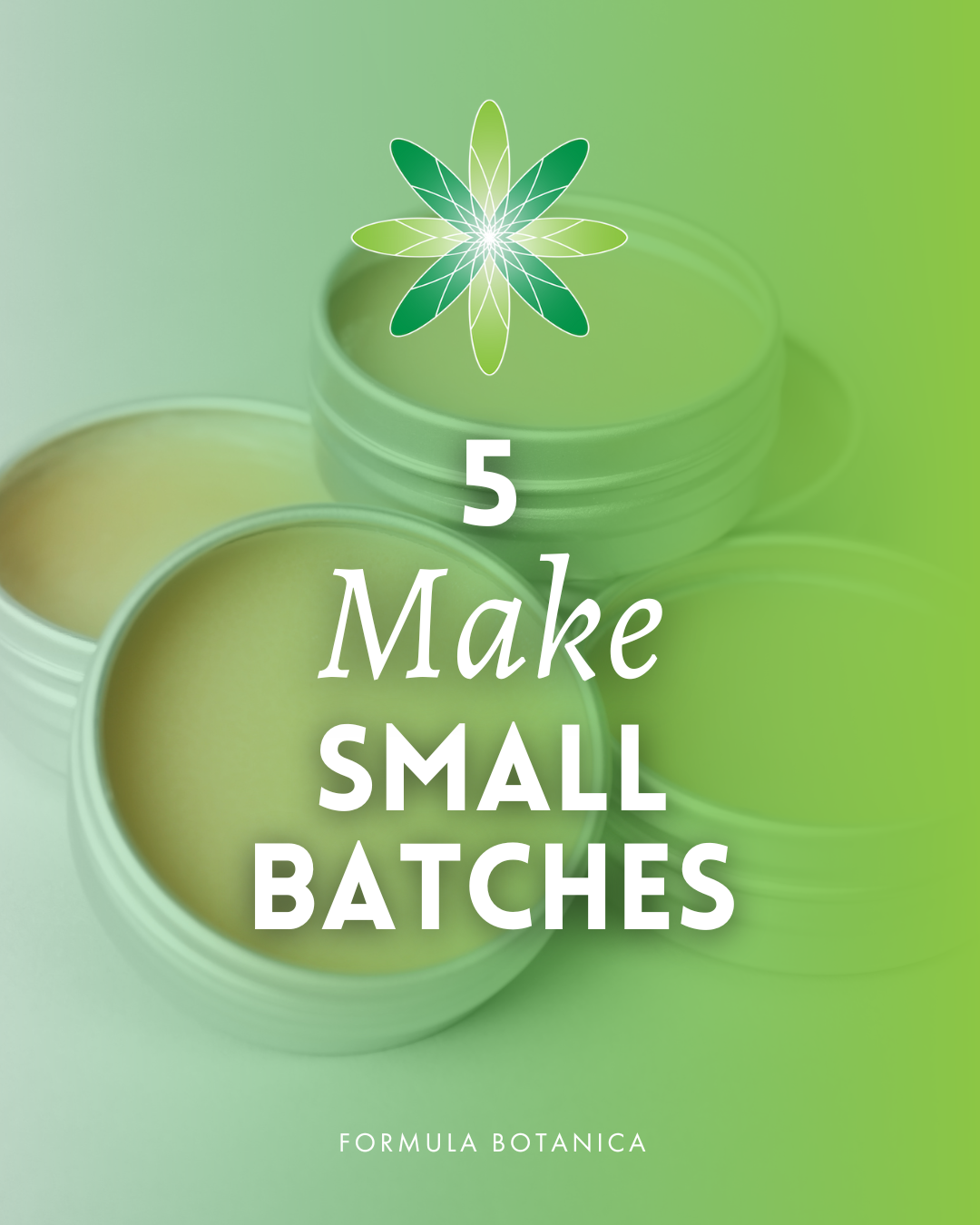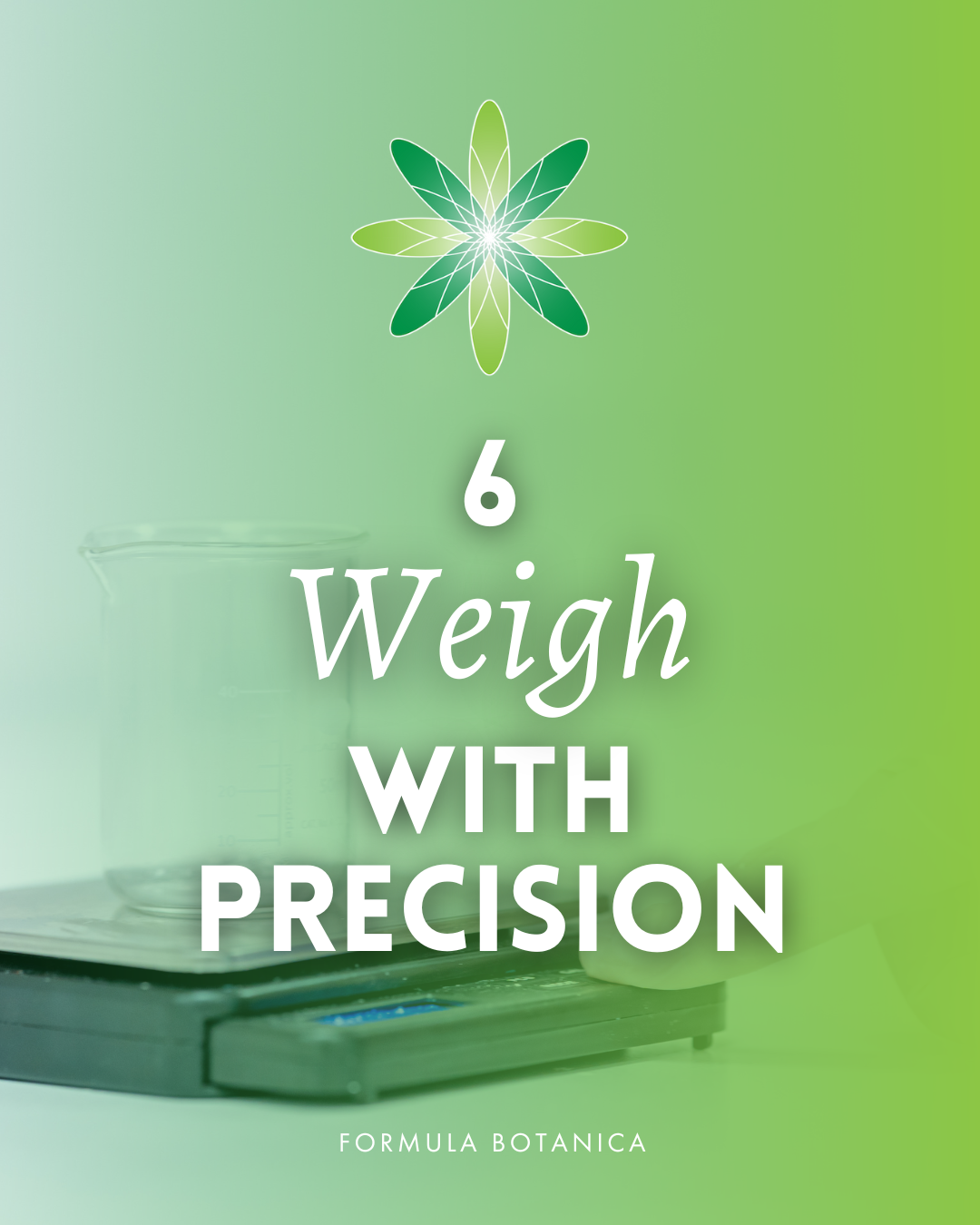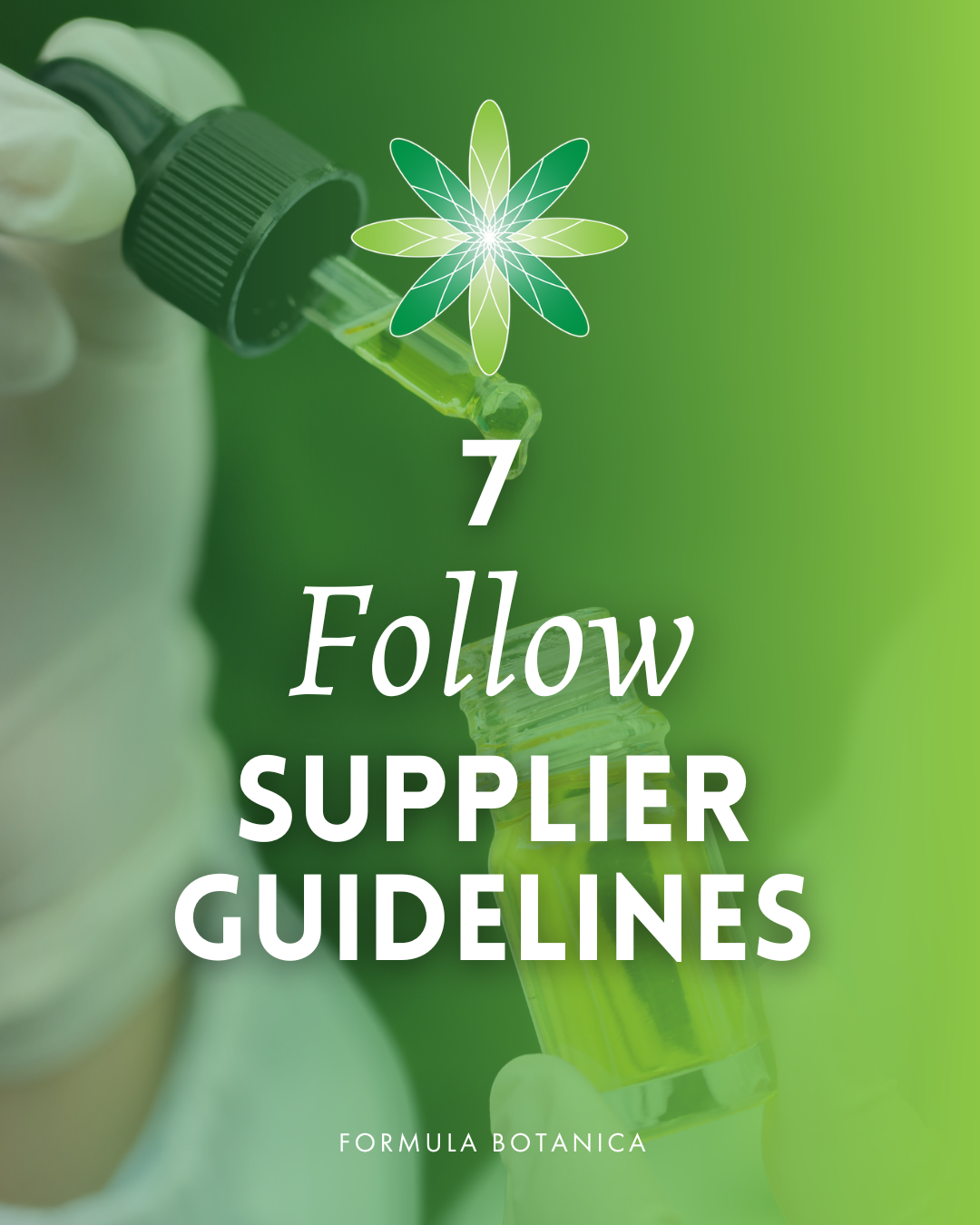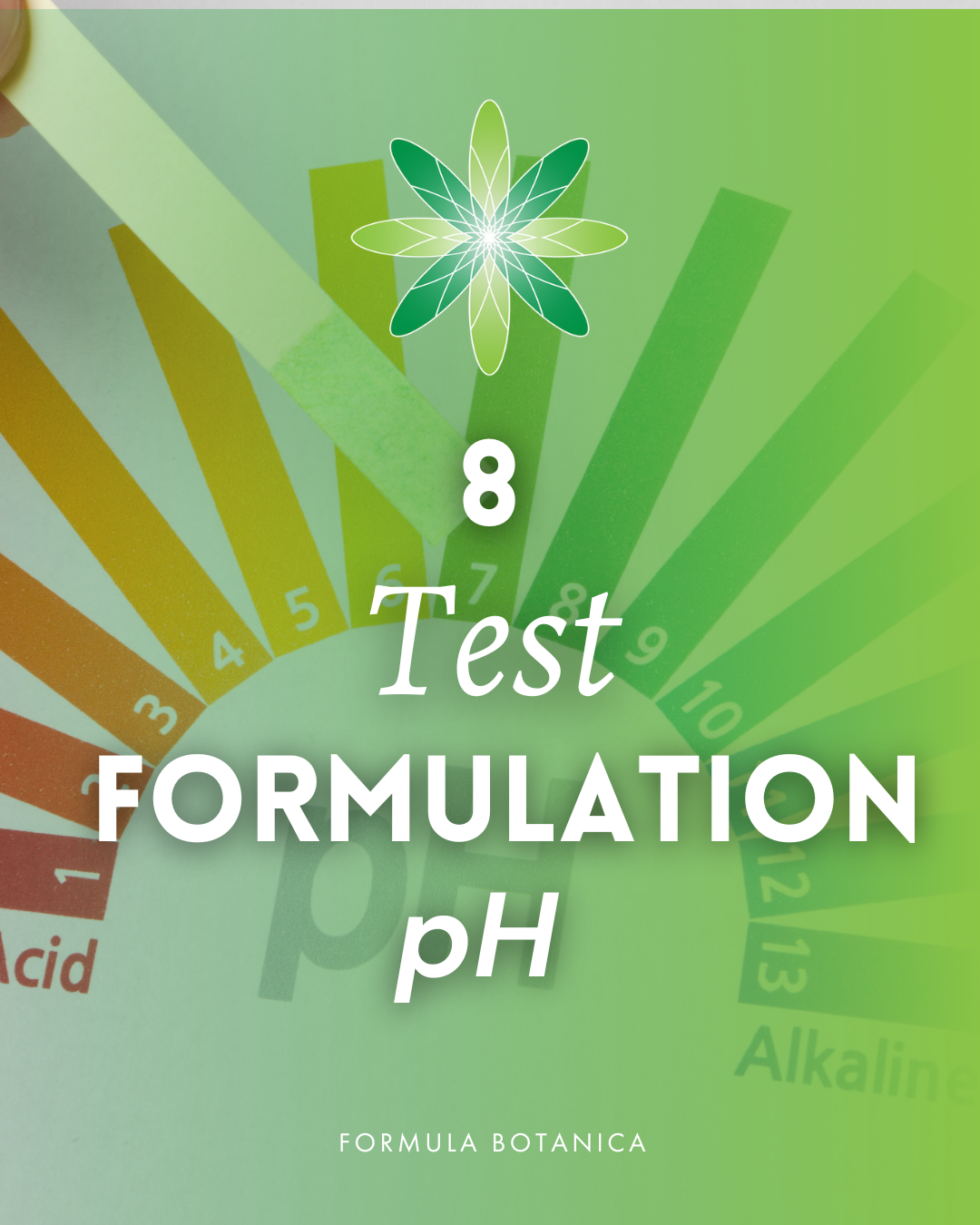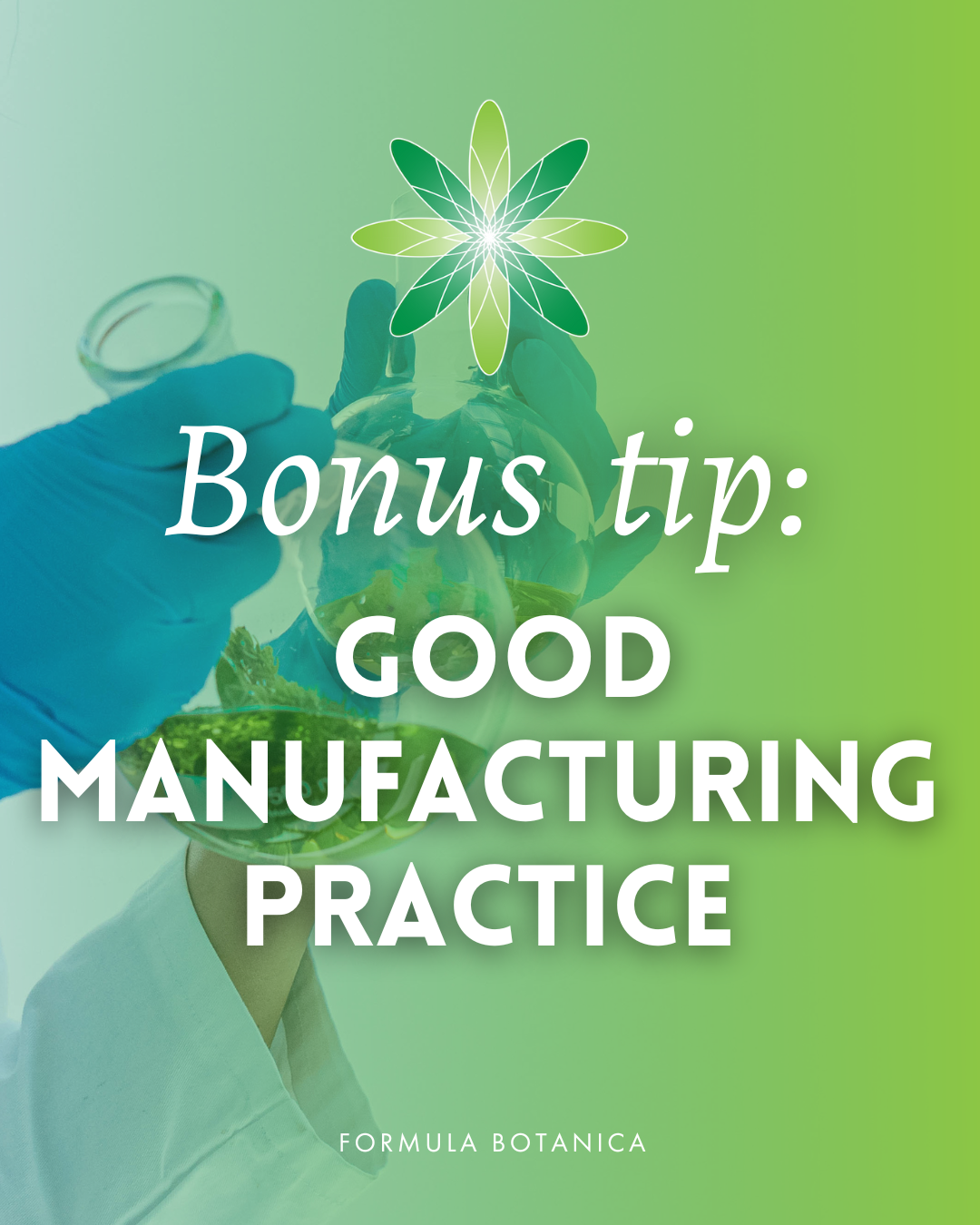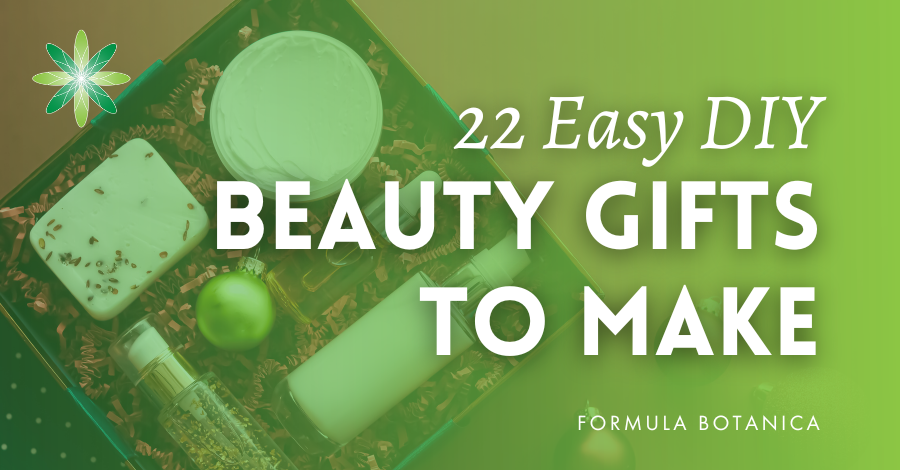Updated 27.02.24
The tradition of making homemade skincare has long been part of many cultures around the world, with recipes often handed down the generations. In recent years, homemade skincare has had a revival in line with the growth of the green beauty movement. It is now a booming trend and you’ll find homemade skincare DIY-ers keenly sharing their recipes and results on social media.
There are plenty of reasons to make your own skincare from knowing precisely what is in your cosmetics to building a dream beauty business. We cover some of the powerful reasons in this post:
Take control of your skincare: 5 reasons make your own beauty products
If you enjoy making homemade cosmetics already, this post is of particular relevance as we outline the most important steps and things to consider when making your own skincare at home. We want you to get the best out of your natural cosmetic ingredients, not only to avoid wasting them, but also, importantly, to ensure you are creating safe cosmetics.
But, if you aren’t already making your own skincare at home, and are worried about how and where to start, let’s talk about the most important point of all – which is that everyone can formulate.
Everyone can formulate – you too
We truly believe at Formula Botanica that everyone can learn to formulate like a pro. There is no need to have chemistry degree. Our students come from all backgrounds and previous careers, and most have little or no prior experience in cosmetic formulation. But don’t take it from us. You can hear how career- and life-changing an experience learning to formulate can be by browsing our graduate gallery of indie beauty brands. See also:
Change your life by taking an online skincare course
6 Ways formulation can change your life
Podcast 127: From indie beauty idea to selling 500 eye creams (interview with graduate-founder Naz Bashir of Solo Skin London)
Inspiring quote: “Formula Botanica helped me envisage my brand as a business, rather than as a hobby and gave me the tools needed for success” – Kim Parenteau, one of our graduates who went on to build a thriving beauty business, Wild Grace, out of her passion homemade skincare.
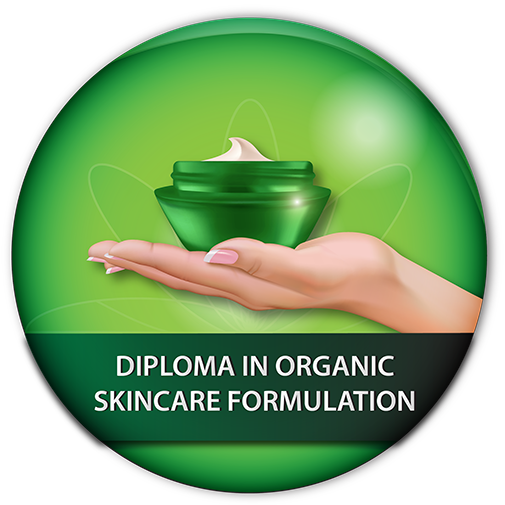
Do you want to learn how to make organic skincare that works?
Our award-winning foundational natural skincare course teaches you how to formulate organic skincare products and launch the beauty brand of your dreams. Click Here
8 Points to know before making homemade skincare
Now you know formulation is for everyone – including you – let’s explore the top 8 points to know before you get started making your own homemade skincare.
1. The right ingredients for making homemade skincare
Our mantra here at Formula Botanica is “the ingredients are the formulation”. When making your own skincare, of course you want to choose the finest and most wonderful botanical ingredients.
Most organic skincare formulators get very excited about the exquisite ingredients you work with when you follow our award-winning online courses – the beautiful cold-pressed plant oils, rich creamy exotic butters, fragrant essential oils, soothing flower waters, mineral-rich clays, and high-performance botanical extracts.
The first step in developing a homemade skincare product is to know your ingredients and learn and experience as much about their skin-beneficial properties and compounds as you can.
We advise you to start with just a few select or favourite ingredients in some simple formulations to get to know how they combine and perform.
If you are totally new to homemade skincare and need a good primer of the common categories of skincare ingredients, we suggest reading our guides:
Natural formulation 101: beginner’s guide to skincare ingredients
A-Z Glossary of cosmetic formulation terms
Top 10 botanical oils every formulator needs
There is a raft of things to consider when buying even small amounts of ingredients for homemade skincare. Think carefully about the ingredients you really need so you can budget and don’t over purchase. Understand how to read the safety data sheets (SDS) and INCI so you know you are buying the right ingredients.
You may wish to consider the sustainability of your ingredients and their journey from field to formula. Worry not, as we’ve some handy reading to get you up to speed fast on these topics:
5 Tips on how to buy natural ingredients
7 Tips on sourcing sustainable botanical ingredients
The formulator’s guide to INCI
This brings us to the question of the type of formula you will make with your lovely ingredient stash.
2. Decide on the right formula
Ingredients and formulations go hand in hand. As a beginner formulator, it’s best to start with simple, framework formulations to enable you to not only grow your skills, but also to explore your chosen ingredients.
We have plenty of inspiration in these posts for easy, first formulations to trial and tailor to your own needs.
Your first botanical formulation – a simple body butter
6 Easy cosmetic formulations for beginners
10 Best beauty products to make at home
Once you gain confidence in the core formulating skills and know which ingredients you want to work with, you need to think of a reason for your nice new formulation. What benefits will it bring you or your customers? Here are just a few of the typical questions you might ask yourself in choosing the right formulation:
- Are you looking to add hydration to the skin or create a moisturising, occlusive layer to protect it from the elements? See: Moisturising vs hyudrating: what’s the difference?
- Are you going to include high-performance ingredients like vitamins, natural retinol alternatives, hyaluronic acid or specific botanical oils.
- Are you using fragrance in essential oils or opting to go fragrance free?
- Will you have a theme for your formulation and make it part of a small range to attract a niche of customers?
- How will your formulation be dispensed and does it need a specific containers?
The wonderful thing about homemade skincare formulation is its blending of science and creativity. You can explore some niche themes and gain inspiration from our graduate brands in this list:
Creativity aside, you will need a formula that is not only effective and fit for its desired cosmetic purpose, but also one that remains safe and stable for the duration of its shelf life. When choosing a formula, your choice should take into consideration not only the ingredients, but also how they interact with each other as this is key in driving cosmetic efficacy and stability.
One such example is the use of vitamin C and niacinamide, which we cover in 4 vitamin C skincare myths every formulator should know.
At Formula Botanica, we offer dedicated certificate course in cosmetic stability testing, and if you take your passion for homemade skincare further and wish to build an indie beauty business, you will need to understand issues like stability, preservation (see below), and cosmetic law and regulations in your part of the world.
As a final point about your choice of formula, do note that not all formulations can be made at home; sunscreens are an example of a formulation that requires technical as well as considerable cosmetic science expertise to be made safely and in line with various regulations and guidelines such as those stipulated by the EU and FDA.
3. Natural preservatives – what you need to know when making homemade skincare
Preservatives are ingredients that are added to a formulation to avoid microbial growth and to prolong the shelf life of a product.
Most cosmetic products have preservatives added to them. The majority of water-containing products, and even some anhydrous products (formulations that don’t contain water or water-loving (hydrophilic) ingredients), should include a preservative system to guard against contamination from yeast, mould and bacteria. When your formula contains water, it provides the ideal conditions for bacterial and fungal growth.
Is there water in your formulation? Is it likely that water will be introduced into your homemade skincare product during its use? Then add a preservative system!
A preservative system should be broad spectrum, meaning that it should protect your formula from the microbial growth of both gram-negative and gram-positive bacteria, yeast and mould. More and more natural preservatives are coming onto the market and we recommend that you always follow manufacturer and suppliers’ usage instructions to ensure your preservative is active and working as expected in your product.
For more on natural preservation, see our comprehensive guide:
You will need stability and microbiological tests to determine a skincare product’s expiration date and if its preservative system is working as it should. Although testing sounds like a big and daunting step when creating products at home for your own use, some tests can be very simply be undertaken to ensure that your formulation is safe for use.
Check out our Certificate in Cosmetic Stability Testing if you want to take your testing skills one step further.
Be extra careful with formulations containing water, clay, honey and fruits, as these are most likely to spoil very quickly and require a suitable, often strong, natural preservative system to ensure their stability and safety over their desired shelf life. You can add an antioxidant such as rosemary antioxidant or tocopherol (vitamin E) to your formulations. To understand how antioxidants work, see:
Don’t forget that contamination can happen well before you see the visible signs of microbial growth on your homemade skincare product. If you don’t wish to add a preservative to your formulation, you should create anhydrous products only.
To conclude:
- Water-containing products are prone to contamination and usually require a preservative system.
- Anhydrous products are prone to oxidation and usually require an antioxidant.
4. Choose the Correct Container
Not only is it great fun to choose gorgeous packaging for your homemade skincare, but the right container can also help keep your formula safe and stable for longer. In fact, it’s important to store your homemade skincare in proper, hygienic containers suited to your type of formulation.
It is easier to contaminate a product that is in an open jar than one dispensed from an air-tight or airless pump container. When possible, choose pump or spray valves that dispense your formula without the need to open the product container. If it isn’t practical to use a pump or spray, perhaps because of the viscosity of the product, then you might consider adding a drop dispenser or a spatula to help get the product out of its packaging – and help reduce the likelihood of introducing contamination.
We’ve a low-down on what to look for and the questions to ask yourself when choosing cosmetic packaging. As a school, we advocate the use of sustainable options and take a less-is-more approach to packaging:
5. Don’t manufacture too much product
As it’s almost impossible to know the likely expiration date of homemade skincare products, one of the best tips we can give you is to produce small amounts. Not only does this mean your cream, balm or butter will be the very freshest it can be, but you’ll also get to play around with different ingredients regularly to whip up a fresh batch (as we know, formulation is additive).
When you’re making anhydrous products that are suitably packaged to minimise contamination, you can make bigger volumes, but always remember to add an antioxidant such as vitamin E or rosemary CO2 extract to slow down product degradation.
With unpreserved, water-based products, we advise you make single-use doses only when you need them. Microbial growth happens fast, especially given the perfect growing conditions found in room temperature.
6. Measure your ingredients correctly
You must measure your ingredients, both liquids and solids, by weight using a digital scale registering as a minimum down to 0.01g.
Measurement in weight is the most accurate method and will allow you to have the right balance of ingredients in your formulation. Finding a good scale is important when you start making homemade skincare.
The volume of liquid ingredients varies according to their density and temperature, and it is easy to exceed the recommend concentration when measuring them in drops, especially when adding ingredients, such as essential oils, in very low concentrations.
In addition, you should always write down your formula and work with percentages so you can reproduce your batch or scale it to larger amounts. We recommend you to take a look at our article: Why you should NEVER measure Essential Oils in Drops.
7. Follow usage recommendations
One of the main reasons why people create homemade cosmetic products is that they want to know what is inside their beauty products, as the results of our survey on understanding the drive for green beauty shows.
We should point out that not only the ingredients themselves are important, but also how they are used in formulations. As mentioned above, it is essential to follow the usage recommendations for many cosmetic ingredients, and some of them, if used in wrong amounts, may cause dermal sensitisation.
When making your own cosmetics, some ingredients such as certain carrier oils can be used at 100 per cent concentration. However, many other ingredients have strict usage recommendations. For example, when you’re working with essential oils you should respect dermal limits of either the oil in totality or of certain compounds within them – such as linalol, eugenol and so on. The same goes for preservatives – you must follow their recommended usage levels in order to be safe and effective.
Essential oils and natural preservatives are among those ingredients that may cause sensitisation in some people and it is imperative therefore that you follow the supplier or manufacturer recommended usage limits in order to make safe cosmetic products.
8. Measure and adjust pH
Measuring and adjusting the pH of a product is a simple step that must not be missed out when you formulate your homemade skincare as it is crucial for the safety of a product.
The pH of a product will influence many important characteristics of your formulation. You can tell, for example, by the pH of the product whether or not your chosen preservative will work effectively and safely. pH also impacts, among other aspects such as the look and feel, colour and scent of a product. We’ve got a post that goes into more detail on what can go wrong if you don’t control your formulation’s pH.
You don’t need a high-tech pH meter in order to measure the pH of your products; you can use pH strips, which are easily available and affordable, as you start out formulating homemade skincare for personal use.
We teach all about measuring and adjusting pH in our Diploma in Organic Skincare Formulation
Bonus: What you need to know about Good Manufacturing Practice (GMP)
As we saw, the key issue in making homemade skincare products is that of avoiding contamination during any stage in formulating and also when the product is used. Choosing the right preservative system is a very important step for the success of your homemade products. However, you need to think also about how best to avoid contamination during the production of your skincare.
Good Manufacturing Practice, otherwise known as GMP, is basic common sense and involves getting into a routine of cleaning and disinfecting your equipment, working space and containers, washing your hands and using lab gloves. These are just some of the simple guidelines that will add safety and effectiveness to your product formulating and ultimately, the help ensure the stability and safety of your final skincare product. Read our post on how to set up your artisan skincare lab.
This post has given you a glimpse into the practices, procedures, ingredients and equipment needed to make DIY cosmetics in a clean, safe, and technically sound manner. With these simple steps, we hope to have inspired you to create beautiful, safe and effective natural DIY cosmetic products.
Please let us know your thoughts on making homemade skincare and do share your experiences with us in the comments below.
FREE TRAINING
Learn how to become an
Organic Skincare Formulator
FREE TRAINING
How to become an
Organic Skincare Entrepreneur
FREE TRAINING
How to become an
Organic Skincare Entrepreneur
Leave us a comment

Eliziane is a Pharmacist and Biochemist, manages our Student Experience Team and provides technical advice for the ingredients research we undertake and provide. She loves bringing together the concepts of science, sustainability and organics. Read more about the Formula Botanica team.


